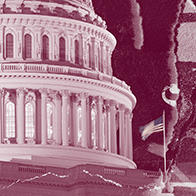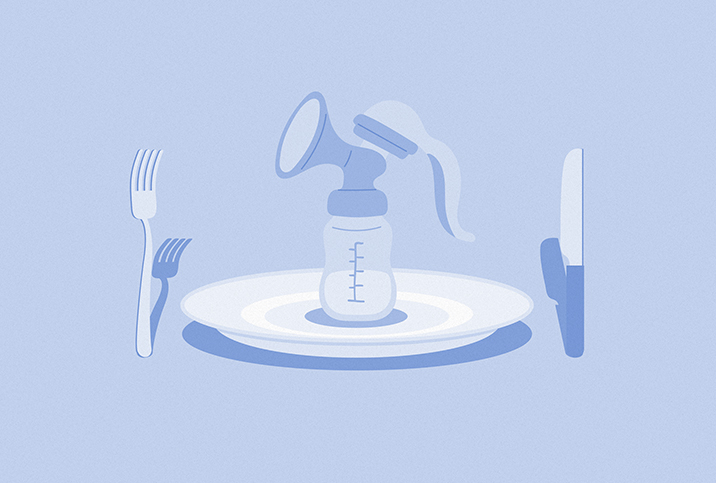Your Public Breastfeeding Rights Explained

While public breastfeeding is legal in every U.S. state, it can still feel like a tricky balancing act to master, especially for new parents.
Feeding your baby can be a vulnerable experience, and some individuals remain antagonistic to public breastfeeding, which can cause stress on new parents. Additionally, some people may not have much experience witnessing public breastfeeding, possibly due to the low rates of breastfeeding in the United States, which can add to the stigma.
In 2018, Utah and Idaho became the final states to pass legislation protecting breastfeeding in public. Since then, it has been legal to publicly breastfeed in all 50 states, Washington, D.C., Puerto Rico and the Virgin Islands. Federal legislation also exists.
Understanding your rights
"At the federal level, breastfeeding gained the most protection when the Affordable Care Act was signed in March 2010," explained Bethany Corbin, a lawyer specializing in femtech at Nixon Gwilt Law in Washington, D.C. "The ACA amended the 1938 Fair Labor Standards Act to require employers to provide reasonable break times for employees to express breast milk for one year after the child's birth."
Employers have a duty to provide a place for mothers to express milk, and it cannot be in a bathroom. In July 2019, Congress passed the Fairness for Breastfeeding Mothers Act, which requires certain public buildings to provide a private space with a chair and electrical outlet for mothers to express milk or feed.
Another public place where women might need to feed is on a flight, a right that is governed by airlines' specific policies. Delta and United Airlines both support breastfeeding rights onboard their aircraft, for example, but Corbin recommended checking the policy of the airline you're flying beforehand to ensure you are protected.
While state laws differ, Corbin explained that California, New York, New Jersey and Illinois have the most significant state-level protections for breastfeeding mothers. New York even has its own Breastfeeding Mothers' Bill of Rights. One statute reads, "You have the right to breastfeed your baby in any location, public or private, where you are otherwise authorized to be."
Breastfeeding is exempt from public indecency laws in 31 states, Washington, D.C., and Puerto Rico.
"A reasonable interpretation of these state laws is that covering up is not required," Corbin said.
In the other states, the law is less clear-cut and open to interpretation on whether covering up is required.
Thirty states, Washington, D.C., and Puerto Rico have additional protections for breastfeeding in the workplace. Twenty-two states and Puerto Rico allow breastfeeding mothers to be exempt from or postpone jury duty until they have weaned their child.
Even though state protections vary, Corbin said a general rule of thumb is that if the woman has the right to be in a certain public place, she has the right to breastfeed there.
The benefits of breastfeeding laws
State laws that support breastfeeding in the workplace and other locations are linked to increased breastfeeding initiation and duration, especially for Hispanic and Black women, according to a 2012 study in the Journal of Epidemiology and Community Health.
The study showed that the rate of breastfeeding initiation was 1.7 percentage points higher in states with laws that provided break time and private space for breastfeeding employees. The study authors suggested laws protecting breastfeeding rights could be an effective strategy for promoting breastfeeding, reducing disparities and achieving public health goals, especially for ethnic minority parents and infants.
Breastfeeding in public can be good for the mother because it allows her to get out and about, and it's good for the baby as it allows them to nurse on demand.
"The benefits of breastfeeding on demand are that it helps infants get enough milk and it keeps milk production in sync with an infant's needs, amongst other benefits for the infant's health, such as improved cognitive development," explained Gabriela Buccini, Ph.D., M.Sc., a board-certified lactation consultant and assistant professor in public health at the University of Nevada, Las Vegas.
"Normalizing breastfeeding in public is also critical to educate our society on the benefits of doing so and build a culture that promotes breastfeeding," Buccini said.
Tips for breastfeeding in public
Buccini shared her tips for feeling comfortable while breastfeeding in public:
- Find breastfeeding-friendly places near you
- Go out with a friend or family member
- Practice in front of a mirror
- Dress in easy-access tops with buttons, zips, cowl or shawl necklines, dungaree-style straps or side openings
- Use a breastfeeding cover, if desired
- Try feeding the baby in a sling or wrap
Other helpful pointers include wearing two shirts so you can lift one and pull the other down while feeding, finding secluded spots such as a café booth, and turning away to latch so you can have some privacy, recommended Bri McCoy, a board-certified lactation consultant with SimpliFed, a virtual pregnancy and postpartum care platform headquartered in Ithaca, New York.
What to do during a negative interaction
Knowing your public breastfeeding rights can help you feel more confident about leaving the house with your baby or when you need to pump milk, Buccini said. Some states, such as Wisconsin, give out pocket cards detailing breastfeeding rights that women can carry with them. This information can help parents defend themselves if they are questioned during a feeding.
Plan your response ahead of time, Buccini said. If you receive a negative comment while nursing your baby, you can politely respond that you are not going to feed your baby in a restroom, or if you're in a restaurant, you can ask that the offended person be moved to a different table where they can't see you.
She added that if you encounter an uncomfortable situation, you can always follow up later with a letter or email, if necessary.
In the event you are asked to stop breastfeeding, cover up or leave the premises, you can evaluate your legal rights regarding violations of state breastfeeding law or discrimination, Corbin said.
Your infant benefits from every feeding you give them on the move, and even if you don't always feel confident, your baby will feel loved and close to you. The law is on your side, and breastfeeding doesn't last forever, so all those feedings create moments to bond and show your baby the world at the same time.




















